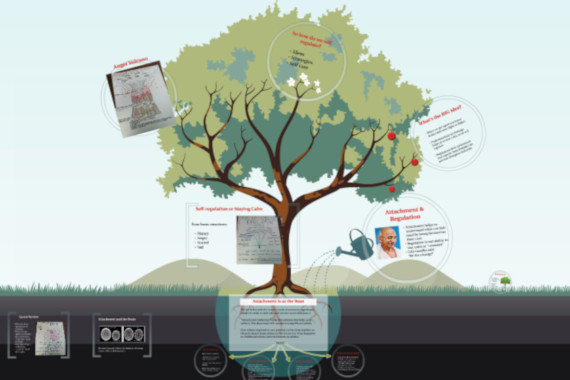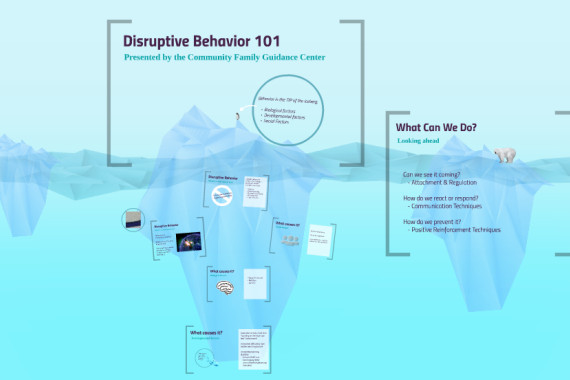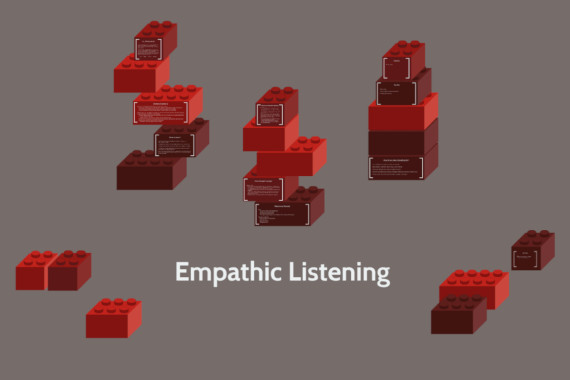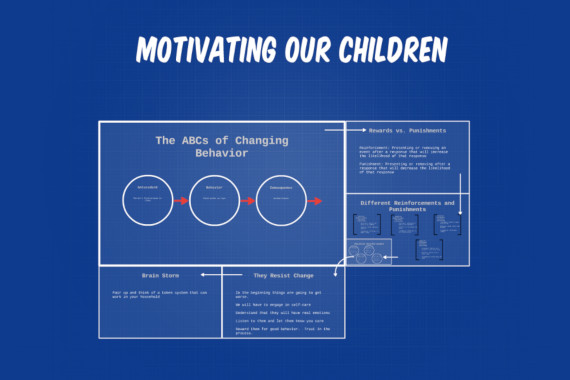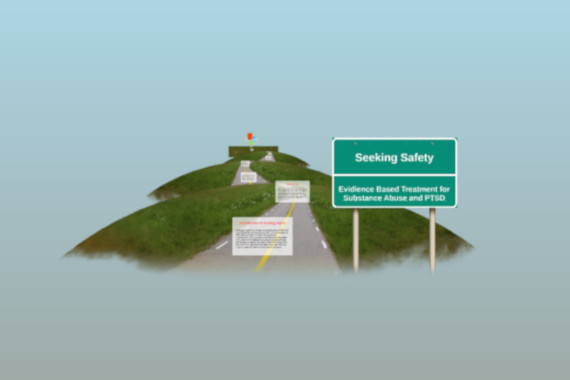Educational Topics: Seeking Safety
SEEKING SAFETY - Evidience Based Treatment for Substance Abuse and PTSD
Introduction to Seeking Safety
- Seeking Safety is an evidence based practice (EBP) that was started by Lisa Najavits in 1993. It is considered an EBP because there is a clinically significant improvement in the symptoms and behaviors of people who suffer from Posttraumatic Stress Disorder (PTSD) and substance abuse disorders. The main focus of the treatment is to offer tools that will help people find safe ways to cope with internal and external stressors.
What is PTSD?
- PTSD is when we experience or witness violence/ bodily harm (i.e. domestic abuse, corporal punishment, car accident natural disaster, sexual assault, etc.) and 3 months afterward still experience flashbacks as if we were experiencing the event in real time, memory has blocked out parts of the trauma, being constantly on edge in fear that it will happen at any moment, avoiding certain triggers that remind us of the trauma, etc. The person with PTSD is impaired from or has extreme difficulty in daily activities (i.e. school, work, relationships, family, etc.)
What is Addiction?
- There are many different definitions of addiction and none of them is perfect. Three main stages of addiction are: use, abuse, and dependence. Everyone starts off at use (i.e. social drinking, smoking weed at concerts with friends, trying speed for the first time because of peer pressure, etc.). When people start building a tolerance for the drug abuse happens (i.e. shifting from a few beers during the game to drinking until we throw up or black out most nights, etc.). Dependence happens when our body needs drugs/alcohol to function (i.e. having to take a drink to stop the morning shakes, having to shoot up heroin to stop our body from feeling tremendous pain during withdrawal, etc.)
Safety
- Drugs, alcohol, isolation, cutting, etc. have given us a false sense of safety because these activities have protected us from our deepest and most painful emotions and been our most dependable friends. However, the drugs, gangs, abusive relationships, etc. start causing more damage then they cover up. Safety offered in this program is learning to put down the coping mechanisms that are unhealthy and unproductive and learning how to gain safety in healthier and more meaningful ways.
Mourning
- Once people stop using drugs to suppress their emotional pain, there will be a volcano of pent up feelings. This is one of the toughest parts of recovery because it requires that raw emotions be experienced. However, this right-of-passage is what will save addicts from countless years of pain caused by substance abuse. There will be a chance to mourn all the harm people have done to us, and all the harm we have done to others. At the end of this process we will be able to accept ourselves for who we are and will be clear about how we would like to change our character and environment.
Reconnection
- This is the phase where recovering people can plug back into real life. Former addicts will no longer have shame and guilt about life experiences and start seeing themselves as survivors rather than victims or perpetrators. People in recovery will be able to share their talents, which were neglected while using substances, and now will be able to showcase themselves in healthy and productive ways. Most importantly, recovering addicts will no longer be ashamed of their past and can help others who went through similar situations. Often giving back to their communities by such activities as volunteering at rape shelters or being a Narcotics Anonymous (NA) sponsor.
Powerlessness
- Powerlessness is a key common denominator for PTSD and substance abuse. In either case the trauma or substance cannot be managed and is taking over. Often people with PTSD will become substance abusers in an effort to self-medicate. Likewise, addicts can find themselves in dangerous situations where they can experience a traumatic event. PTSD and addiction can turn into a downward spiral both making the other more intense.
Take Back Your Power
- Having compassion for ourselves is a way of taking back power. Understanding our trauma and how our mind and body are responding will transform the self-blame to self-respect. To understand the reasons behind trauma and coinciding substance use does not allow us to continue our unsafe behaviors. Rather, it allows us to identify how we are currently coping with stress or pain, which will open the window to other ways of seeking safety.
What is Eye Cue Mental Health
Eye Cue Mental Health Provides High Quality Mental Health Care.
Eye Cue Mental Health is located in Cerritos, CA. Our office is located where the 91 and 605 freeways meet and borders both Los Angeles and Orange County. Our psychotherapy treatments utilize Evidence Based Practices and are highly effective, run by Saqib Iqbal, Licensed Clinical Social Worker (LCSW).
Our clinic offers a range of psychological services and treatments to children, adolescents and adults in our community. We provide comprehensive psychological assessments and psychotherapies. From time to time we offer group therapy for adults struggling with depression, anxiety, or substance abuse.
Many clients are adults who find themselves in a cycle of unhealthy habits and negative personal beliefs. We use Cognitive Behavioral Therapy and Solution Focused Therapy, among other treatment approaches, to reduce the impact of mental health symptoms on daily living. Couples are also invited to explore their relationship in a safe and open setting to discover and express emotions..
Conditions Treated:
- Major Depressive Disorder
- Generalized Anxiety Disorder
- Panic Disorder
- Specific Phobia
- Attention Deficit/Hyperactivity Disorder
- Substance Abuse/Dependence
- Sexual Addiction
- Posttraumatic Stress Disorder
- Adjustment Disorder
- Schizophrenia
- Dual Diagnosis
Specialization in Treatment of the Following Diagnoses:
Companies We Work With:
- Aetna
- Beacon Health Options
- Beacon Health Strategies
- Blue Shield
- Cigna
- Health Net
- Kaiser (Out-of-Network)
- Magellan
- Medi-Cal
- Medi-Care
- MHN
- Open Path
- Optum
- TRICARE
Companies We Work With:
- Aetna
- Beacon Health Options
- Beacon Health Strategies
- Blue Shield
- Cigna
- Health Net
- Kaiser (Out-of-Network)
- Magellan
- Medi-Cal
- Medi-Care
- MHN
- Open Path
- Optum
- TRICARE
Service Areas:
- Artesia
- Cerritos
- Bellflower
- Norwalk
- La Palma
- Los Alimitos
- Long Beach
- Lakewood
- Los Angeles
- Whittier
- Orange
- Santa Ana
- Anaheim
- Rancho Dominguez
- Torrance
- Carson
- Gardena
- Lawndale
- San Pedro
- Hawthorne
- Inglewood
- Paramount
- Tustin
- El Segundo
- Redondo Beach
- Palos Verdes
- Redondo Beach
- Hermosa Beach
- Seal Beach
- Westwood
- Hollywood
- Pomona
- Monrovia
- Glendora
- Covina
Get in Touch
You can contact us any way that is convenient for you. We are available 24/7 via fax or email. You can also use a quick contact form below or visit our office personally.
We would be happy to answer your questions.
